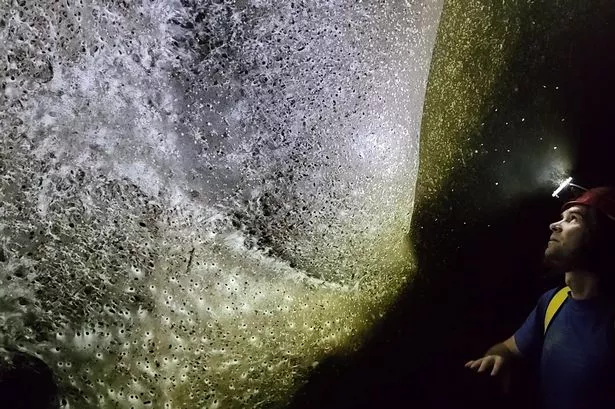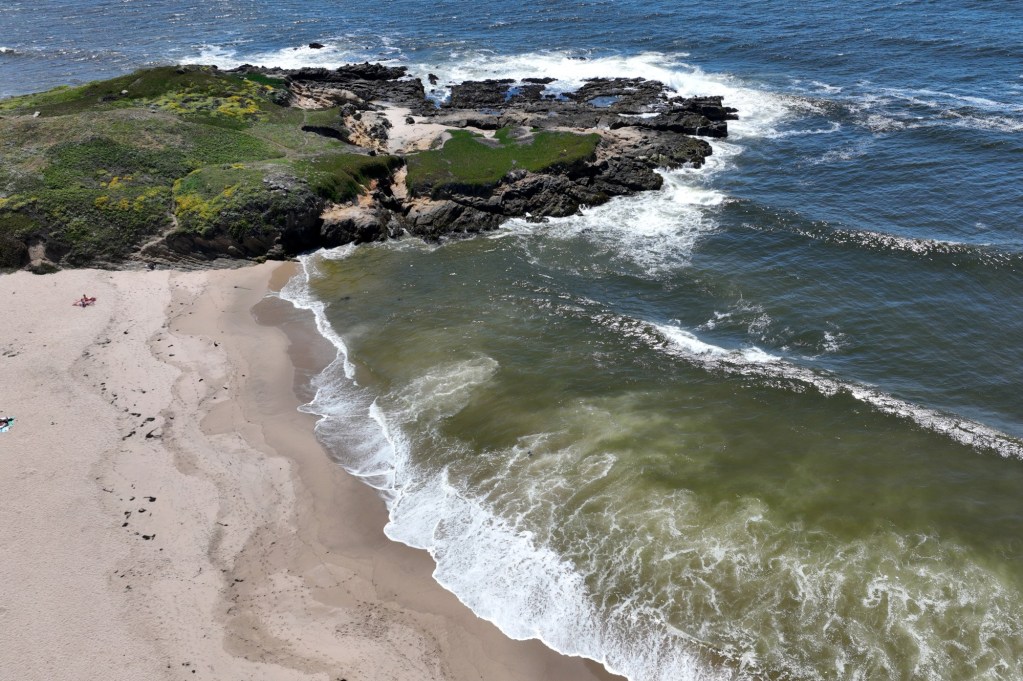New reports confirm an astonishing discovery in a dark cave along the Greek-Albanian border: the largest spider web on record, sprawling over an incredible 1,140 square feet and home to a staggering 110,000 spiders. This shocking revelation, documented in a study published on October 17 in the journal Subterranean Biology, is sending ripples through the scientific community.
Researchers from the Sapientia Hungarian University of Transylvania, led by Istvan Urak, made this unprecedented find while investigating the extensive web, which marks the first known instance of two common spider species collaborating within a single colony. “The natural world still holds countless surprises for us,” Urak stated, expressing his awe. “You have to experience it to truly know what it feels like.”
The colossal spider web was originally discovered in 2022 by cavers from the Czech Speleological Society in the Vromoner Canyon. A return expedition in 2024 allowed scientists to collect samples of the spiders, revealing the web’s unique composition. It houses 69,000 Tegenaria domestica, known as the barn funnel weaver or domestic house spider, alongside 42,000 Prinerigone vagans. This collaboration between species is a groundbreaking observation that challenges previous understandings of arachnid behavior.
The implications of this discovery extend far beyond just spider enthusiasts. It reveals the intricate and unexpected relationships within ecosystems, showcasing how species can work together in ways previously undocumented. This finding may inspire further research into spider behavior and ecology, potentially reshaping our understanding of biodiversity.
Additionally, a recent study suggests that spiders may not have evolved on land as previously thought, but rather in the sea around 500 million years ago. This challenges long-held beliefs about arachnid evolution and could lead to new insights into the history of these fascinating creatures.
As scientists continue to analyze the site and its inhabitants, the world watches with bated breath. The discovery of this enormous spider web not only serves as a reminder of nature’s wonders but also fuels curiosity about what other secrets the natural world may still hold.
Stay tuned for more updates as researchers delve deeper into this remarkable find, exploring the ecological significance and potential applications of their groundbreaking observations. The spider web’s discovery is a vivid example of how much we still have to learn about the interconnectedness of life on our planet.







